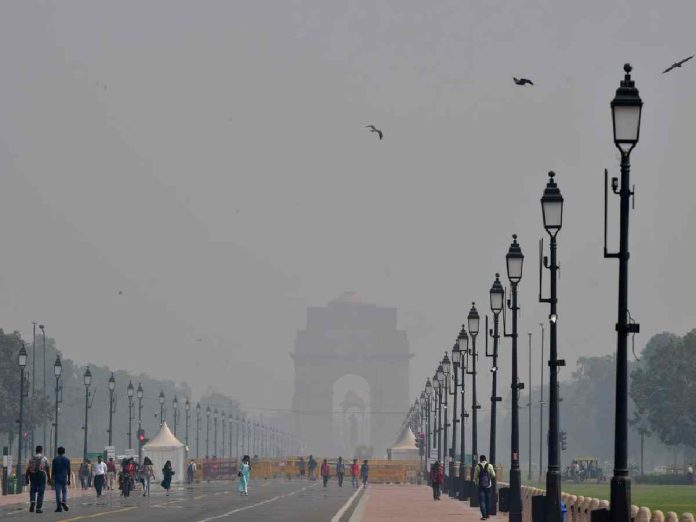With rise of Air Pollution air quality continues to deteriorate in Delhi NCR, concerns over public health are growing. With rising pollution levels posing severe risks, especially to children, health experts emphasize the urgent need for proactive measures. Dr. Rahul Mehra, India’s National Representative for the UNESCO Chair in Global Health & Education, has highlighted the importance of compulsory health education in middle school curricula. According to him, preventive health education can equip children with essential knowledge and strategies to combat environmental and health challenges, fostering a more informed and healthier generation.
Rising Air Pollution and Its Impact on Children’s Health
Delhi NCR has long battled severe air pollution, particularly during winter when factors like crop burning, vehicular emissions, and industrial pollutants significantly degrade air quality. The Air Quality Index (AQI) often reaches hazardous levels, causing respiratory illnesses, eye irritation, and long-term health complications. Children are particularly vulnerable due to their developing lungs and higher respiration rates. Exposure to toxic air can lead to conditions such as asthma, bronchitis, and impaired lung function.
Despite repeated government interventions, including odd-even traffic schemes and the promotion of cleaner energy sources, air pollution remains a persistent challenge. The need for a preventive approach, starting with education, has never been more crucial.
The Role of Preventive Health Education
Preventive health education empowers children with the knowledge and skills to protect themselves from health hazards. By integrating it into middle school curricula, students can develop an understanding of air pollution, its sources, and its impact on health. Some key areas of focus include:
- Understanding Air Pollution: Teaching students about different pollutants, their sources, and their health effects can help them make informed choices.
- Protective Measures: Educating children about wearing masks, avoiding outdoor activities during high pollution days, and using air purifiers can mitigate health risks.
- Healthy Lifestyle Choices: Encouraging balanced nutrition, hydration, and breathing exercises can strengthen immunity and lung function.
- Sustainable Practices: Promoting eco-friendly habits like using public transport, reducing plastic waste, and planting trees can help students contribute to a cleaner environment.
The Global Perspective on Health Education
Countries worldwide have recognized the importance of health education in combating environmental challenges. For example:
- Finland incorporates health education as a compulsory subject, teaching students about personal and environmental health.
- Singapore has an extensive health promotion framework that includes school-based programs to educate children on pollution and hygiene.
- Japan integrates health literacy into its curriculum, emphasizing cleanliness, disease prevention, and sustainable practices.
India can take inspiration from these models to create a structured and effective health education curriculum.
Government and Policy Support for Health Education
The Indian government has taken various initiatives to address air pollution, including the National Clean Air Programme (NCAP) and the Graded Response Action Plan (GRAP). However, there is a significant gap in awareness and preventive health education.
Introducing a structured Health & Environmental Education Policy at the school level can have long-term benefits, ensuring that children are equipped with the knowledge and habits necessary to safeguard their well-being. Policymakers, educators, and health professionals must collaborate to design a curriculum that aligns with India’s unique environmental challenges.
The Road Ahead: Steps to Implement Health Education
To make health education a reality in Indian middle schools, a multi-pronged approach is required:
- Curriculum Development: Designing interactive and engaging modules focusing on air pollution, hygiene, and preventive healthcare.
- Teacher Training: Educating teachers on health concepts and interactive teaching methods to make learning impactful.
- Community Involvement: Encouraging parents and local communities to support and reinforce health education outside schools.
- Government Mandates: Introducing policies that make health education a compulsory subject in all schools.
The deteriorating air quality in Delhi NCR is a stark reminder of the urgent need for proactive health education. By making preventive health education a mandatory part of middle school curricula, India can equip future generations with the knowledge and tools to safeguard their health against environmental hazards. With the right policies and collective efforts, we can nurture a healthier, more informed society prepared to tackle challenges like air pollution effectively.
Follow Swadesi for more such updates!




